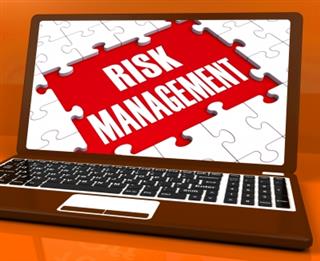


Are You Leading Your School’s Culture, Or Is It Leading Your School?
[By Bruce Hennes, Hennes Communications]
David Wolowitz is an attorney with McLane Middleton, a law firm in Portsmouth, New Hampshire. He is also one of the country’s most in-demand experts on sexual misconduct, with a focus on independent schools.
We first met David a number of years ago when we served on a panel together. “How to Manage Sexual Misconduct” was the panel’s title, with the Oswald Companies, one of the largest insurance brokers in the State of Ohio, as the title sponsor.
The panel included a professor from Kent State University who defined pedophilia, grooming and other terminology; an executive with the Philadelphia Insurance Company talked about the procedures for working with claims representatives; Wolowitz spoke of what steps the school should take when it does happen; and I talked about how to communicate with your key stakeholders after it happens.
As was expected, most of the conversation was about when something like this happens – not if.
Certainly, long gone are the days when a former student would call a head master or school principal to tell him or her that 10 years earlier, a teacher (who’s still on the faculty, by the way) did something inappropriate – and the head master/principal would simply thank the former student for calling and wish them well. Now, the authorities must be notified and action taken.
Whether it’s a school dealing with sexual misconduct (teacher-to-student or student-to-student), or a government agency, manufacturer, nonprofit, hospital or other health care facility, those institutions – and the people who work for them – will judged not so much on the fact that it happened, but what they did after it happened. As well, questions will be asked about the rules and regulations that were in-place (or should have been in-place) before it happened, questions that will include references to institutional culture.
Back to Wolowitz. Recently, Wolowitz, along with a colleague, Claude Marchessault, wrote a piece about managing risk by managing culture. From that article:
School leaders understand that today, more than ever before, nothing is more important to their school community than confidence that the students in the school’s care are safe. A single incident of serious behavioral misconduct, whether by a student, a teacher, or a staff member, harms not only the victim, but can severely damage the reputation of a school. Parents, alumni, and donors expect that schools are taking appropriate steps to promote and protect the health, safety, and welfare of students.
Not surprisingly, many independent schools are responding to these expectations with an increased focus on risk management. Many have implemented or enhanced risk management systems. These help schools identify conduct that violates the school’s policies, such as harassment, discrimination, hazing, bullying and sexual assault. However, while these systems are appropriate and essential to keeping schools safe, they are only a component of a systematic approach, not the entire solution.
Risk management systems are designed, as their title suggests, to manage risk, not to address the root causes of it. By their nature, they are reactive approaches designed in response to external forces, such as legislation, regulation and litigation. Their focus is compliance. But all too often, an increased focus on compliance leads to resistance manifested in surreptitious activity, whether by students or employees. Employees and students tend to be heavily influenced by their peer groups which operate by their shared values and concerns. These powerful sub-cultures are self-centered rather than system-centered and can be frustratingly resistant to change. If they perceive compliance efforts as potentially adversely impacting their interests, such as changing the preferred status quo, they will not be receptive to them. Stated otherwise, an unhealthy culture can overcome the best efforts at achieving compliance.
To read the read the rest of this piece, click here.
———————————————————–
We often work closely with attorneys across the country that have particular expertise in these sensitive, specialized areas. In recognition of this, The Ohio School Boards Association (OSBA) has entered into a strategic partnership with Hennes Communications to provide crisis management and communications services to public school systems throughout the State of Ohio facing sudden challenges to their organizations’ reputations and operations. With this partnership, OSBA member school leaders have access 365 days a year to expert crisis communications professionals. For more information about this, click here.
Our practice area encompasses public, parochial and independent schools across all of North America. If you’d like to discuss how these risks can be managed before, during and after an incident, please do give Hennes Communications a call.